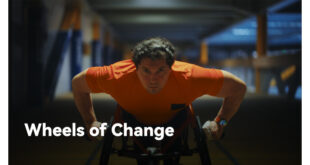- Completion of Phase 1 testing demonstrates 91%
sensitivity and 85% specificity - Further optimisation studies are currently being performed
and are expected to continue to improve results and match WHO standards - Next steps are completion of regulatory approvals and
moving the technology to market as soon as possible
ZURICH, SWITZERLAND – EQS Newswire -
25 January 2020 – Achiko AG (SWX:ACHI,
ISIN CH0522213468) along with Regenacellx.sl, announces the completion of their
Phase 1 study, for the group’s patent pending, nanoparticulate DNA aptamer
conjugate and diagnostic testing technology, Project Gumnuts. Following a
successful in vitro study conducted in 2020 by the University of Rovira,
Tarragona, Spain, the current series of studies in Spain and Indonesia were
conducted by ISGlobal (The Barcelona Institute for Global Health), and both
Riau University and Madani Pekanbaru City District Hospital, respectively.
The study conducted in Barcelona involved translating the
Rovira laboratory protocol into a clinical setting using the original prototype
materials. A sample of 82 participants collected over 3 months and across a
range of scenarios was compared and cross-referenced against positive and
negative results obtained through RT-PCR. An initial manual read yielded a
result of 80% sensitivity and 63% specificity. Subsequent application of
software and machine learning yielded a result of 91% sensitivity and 85%
specificity.
“We are encouraged by the progress of Project Gumnuts
in the field”, said Dr Michael Edel of Regenacellx.sl and Inventor of
Project Gumnuts. “The chemistry offers possible advantages over other
approaches especially in the areas of consumer experience, stability and cost
and we’re looking forward to the further development of the technology.”
The ongoing studies in Pekanbaru, Indonesia are being
conducted with both the original prototype conjugate (Barcelona study) and additionally
with a new conjugate with applied improvements. To date, over 250 patient tests
have been compared with results obtained through nasopharyngeal swabs with 20
to 30 more being performed each week. Using prototyping materials, the
Indonesian team has successfully replicated results from Spain in the field in
Pekanbaru: test results from 64 participants initially yielded 82% sensitivity
and 63% specificity rates. After conducting further testing using improved
pre-production materials and further improvements in software and machine
learning, sensitivity and specificity could be improved and testing time was
reduced to under 15 minutes. The Company expects further gains to be made in
ensuing months.
“We’re now moving quickly to get the technology into
test kits and into and through approvals, and we believe that given the
progress beyond the initial prototypes, we’ll be able to deliver test kits
which pass the WHO guidelines for sensitivity and specificity”, said
Steven Goh, CEO of Achiko AG. “We believe that as testing moves from point
of care to point of need, the presence of the right testing technologies with
the right consumer experience, available in large quantities and at the
right price point, to customers at the right time, will contribute to
successfully responding to and overcoming the impact of Covid-19 on society and
do good in this world. That is what we’re here for.”
The issuer is solely responsible for the content of this
announcement.
Source link
 Odisha Samachar Odisha Breaking News , Odisha Current News , Odisha News
Odisha Samachar Odisha Breaking News , Odisha Current News , Odisha News




